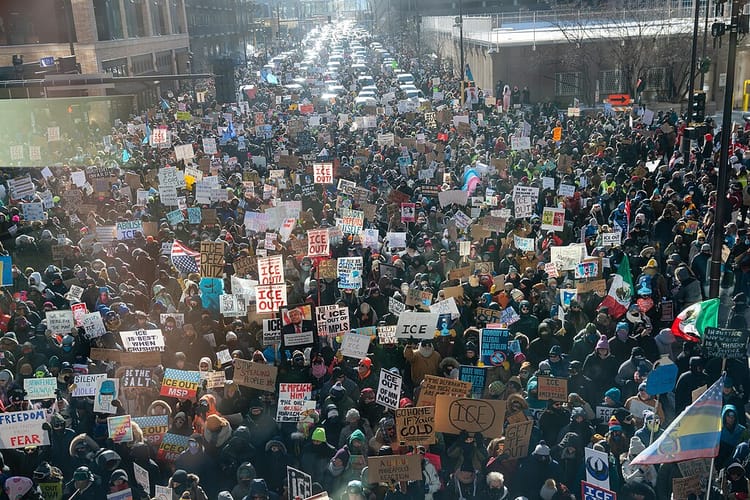What's Coming: Peak Oil, Maximum LNG and Ethanol, State Violence, the CCS Boom, and a Lot More Climate Litigation

I haven't sent out a newsletter for a couple of weeks, partly because I'm working on a book that's due in February, which is keeping me even busier than usual, but also because I didn't want to write a knee-jerk "here's what's in store for climate in a Trump presidency" reaction. I needed time to marinate. As it happens, we're working on various stories and projects that touch on exactly what's coming...because the industry has been setting the wheels in motion for a while. I think it's helpful, if a bit overwhelming, to look at all of it together...hopefully you'll feel the same!
First I'm going to try to get it all in one sentence, here goes: Oil reserves are depleting globally and oil execs are reacting both by diversifying—leaning into LNG and, relatedly, petrochemicals, even more, and tapping oil reserves they've been camping out on for decades—and by trying to extend the life of existing oilfields via enhanced oil recovery (hence the CCS boom); they are also doubling down on repression of protest, helped by various oil-friendly governments around the world. Damn I need another sentence: Given that the world's governments are failing to rein any of this in, one of the few remaining institutional tools left to address it is climate litigation.
Okay now let's unpack all of that. First, the peak oil part. People have been freaking out about and then brushing away the question of peak oil for a long time, but we're now starting to see clear signs that the decline is already beginning. Some of the United States' most productive oil fields, for example—the Bakken and the Permian—are increasingly dependent on enhanced oil recovery, or EOR, a process by which compressed carbon is injected underground to draw out more oil. Scroll any message board where folks in the industry are popping off and about half the posts will reference peak oil or depleted reserves. This matters less because of any resultant shortage of supply as because of how oil companies are valued, which is tied directly to their production and reserves (highly recommend reading the book Private Empire, which does an excellent job of explaining this!).
As a result, the industry has for a while now been putting various things in place to transition to new products and markets—no, not renewables, they have been pursuing an entirely different transition (and they've been doing so swiftly and effectively, so the idea that energy transition is impossible is absolutely ridiculous), one where carbon is a commodity not a waste product and LNG is cheap and ubiquitous.
The carbon capture and storage (CCS) boom is neither a greenwashing campaign nor a genuine attempt to tackle carbon emissions, it has been driven almost entirely by the industry's increasing reliance on EOR to deal with oil fields in decline. Compressed carbon turns out to be the best way to get dwindling oil reserves out of the ground, but it's also one of the more expensive methods. Solution? Re-brand the process as a climate solution and get taxpayers to fund it. That is what the 45Q tax credit, passed as part of the Inflation Reduction Act, is all about. (For more on that, we did a deep dive here.) 45Q has also been a lifeline to the corn ethanol industry, a terrible idea that just won't die (but, as Emily Grubert has pointed out, is a great illustration of the fact that policy can do things). Worth pointing out here that a one-acre solar farm produces as much energy as 100 acres of corn-based ethanol. There are currently tens of millions of acres of corn going toward ethanol production in the U.S., which has an impact on soil, water, and chemical usage as well as emissions. It is easier and cheaper to do CCS on a corn ethanol plant than lots of other plants, which makes 45Q a huge boon for ethanol producers. Connecting CCS to corn ethanol also helps the fuel qualify as a "sustainable aviation fuel," opening up more markets and government subsidies for the stuff.
On the liquefied natural gas (LNG) front, lot of climate campaigners have been saying for some time now that the industry is on track to flood the market and tank prices; in fact that's already happened in the Permian. But look, the fossil fuel industry is a lot of things, and stupid ain't one of them; they didn't just accidentally start over-producing LNG. As one researcher put it to me recently, "the glut is a feature not a bug." The industry wants to unlock demand in what they call "price-sensitive markets," particularly in Southeast Asia, and is taking a calculated risk that near-term losses will be more than covered by locking in demand long term. This is also why those LNG export terminals are so important—the strategy only works if you can pipe your cheap gas from the Permian to either the U.S. Gulf Coast or, ideally, to the Pacific Coast—either Baja in Mexico or, eventually, to the Alaska LNG terminal, which will get rammed through no matter how little sense it makes—for export to Asia.
And at the same time, the rapid increase in state suppression of climate protest that we've been chronicling for more than a year now is only getting worse. Sociologist Dana Fisher detailed in her book Saving Ourselves how ultimately state violence tends to rally the public around a cause, but expect to see both more disruptive protests and more police violence against protestors in the years ahead.
So. We have three false solutions that are well on their way to being entrenched, somehow even less political will for acting on climate than there was a decade ago, and increased suppression of activists. The one possible bright spot amongst this is that climate litigation, which has been chugging along for the past several years, is likely going to ramp up and even the dismal state of the U.S. judicial system can't totally protect U.S. oil companies. Lee Raymond once famously swatted away the idea that Exxon was an American company that should operate in American interests, asserting that it is instead a global oil company focused on getting and selling oil; the potential downside of that is that courts all over the world have affirmed time and again their jurisdiction over such companies. If you operate globally, you are legally accountable in multiple countries.
The recent ruling in the big Dutch Shell case, for example, was widely reported as an unequivocal win for Shell, but while the court did roll back the idea that Shell needs to hit the particular target laid out in the suit (reducing its emissions, including Scope 3, by 45% of 2019 levels by 2030), it reaffirmed the idea that Shell is legally required to reduce all of its emissions, including Scope 3, globally. Meanwhile, an historic hearing is taking place this month at the International Court of Justice exploring what obligations states have under existing rules and agreements to tackle rising greenhouse gas emissions and what happens if they fail to do so.
If you're feeling like relying on global courts and activists willing to risk bodily harm or incarceration is perhaps the worst way possible to tackle a global crisis, you're right. It could not be more important to have a broad-based, intersectional, well organized climate movement, but instead we have more of the same in-fighting and "my way is the best way" bullshit than I've personally ever seen in climate spaces. A not at all gentle plea: We need to stop being our worst selves at a time that demands our best. I know it's hard, did you think global change wouldn't be?





